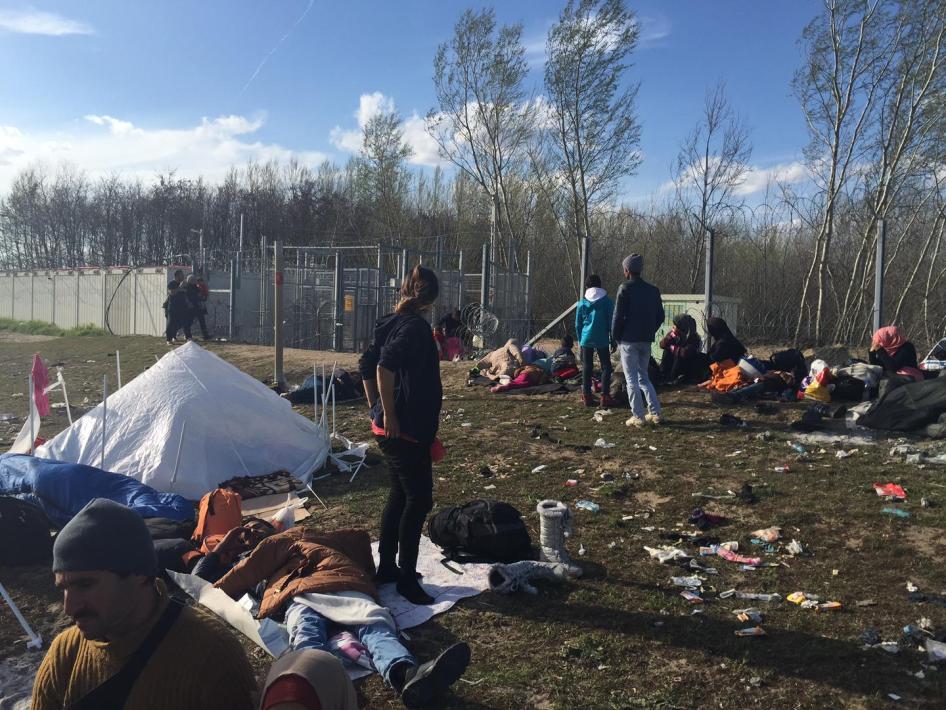“We live like dogs here…We sleep on the ground with our children on our laps…and we only received biscuits.”
When I spoke to 27-year old “Khadiya” from Syria, three-months pregnant and travelling with her husband and two children, aged five and three, she had been waiting outside for three days to enter the transit zone in Roszke, Hungary, to register as asylum seekers in Hungary.
“The [Hungarian] police haven’t given us information, they [authorities] haven’t even spoken to us but the UN has told us to be patient…there is no system for admission, they just pick people at random.”
They are not alone. Last week, I saw about 90 other people at the transit zones in Roszke and Tompa, who had been waiting outside in the cold between 12 hours and up to seven days to register as asylum seekers. Included were many children, a 45-day-old infant, pregnant women, and people with medical problems such as diabetes, epilepsy and hypertension. They had received no information from Hungarian authorities about how long they could expect to wait or the procedure inside; any screening to identify and prioritize vulnerable people appeared to be haphazard.
Last September, the Hungarian government set up these two transit zones along the barbwire fence on the Hungarian-Serbian- border to process asylum seekers in a fast-track procedure. Initially capped at 100 people a day in each zone, that was subsequently decreased to 50, then 30 and now 20, leaving dozens stranded outside the zones, sometimes for many days. The Hungarian government maintains a legal fiction that neither the transit zones nor the area directly outside are Hungarian territory, thus trying to wash its hands of responsibility to provide humane conditions for asylum seekers within its jurisdiction. (According to aid organizations with access to the zones, some services are available inside the zones).
There is no such thing as a ‘rights free zone’ within the jurisdiction of any state, and Hungary is no exception. The Hungarian government should ensure adequate staffing in the transit zones to respond to the numbers of asylum seekers at its borders, and take measures to identify and prioritize particularly vulnerable groups. The authorities should attend to basic needs, both inside and outside the transit zones, and provide asylum seekers with information about their rights and access to a fair and effective process to determine their protection needs.










